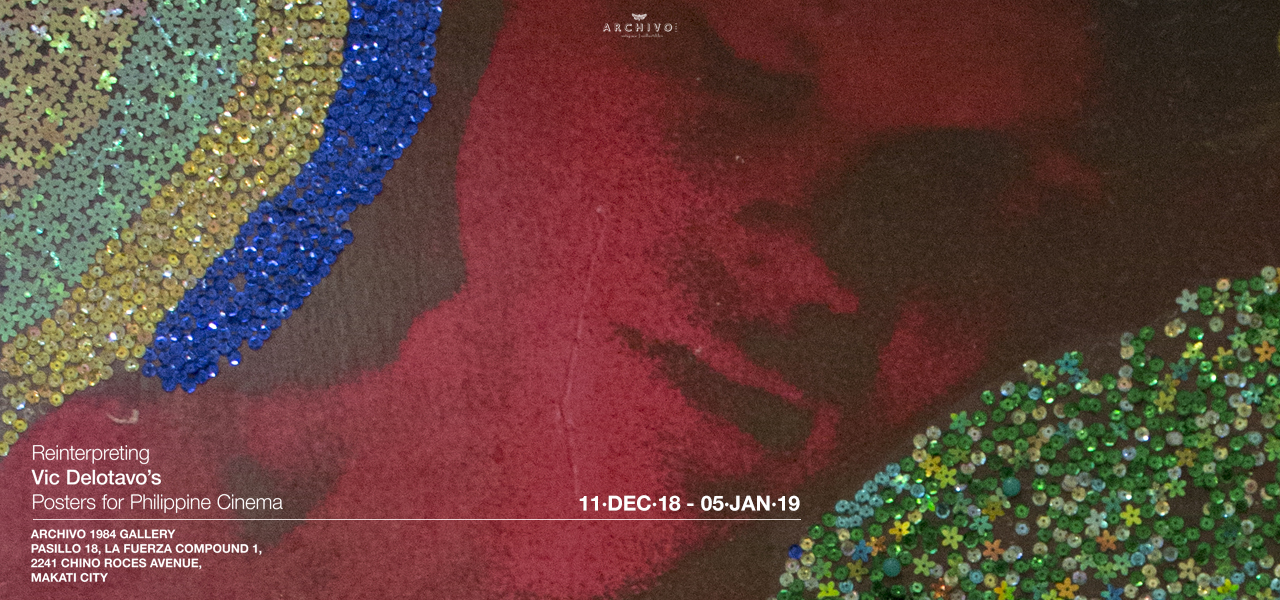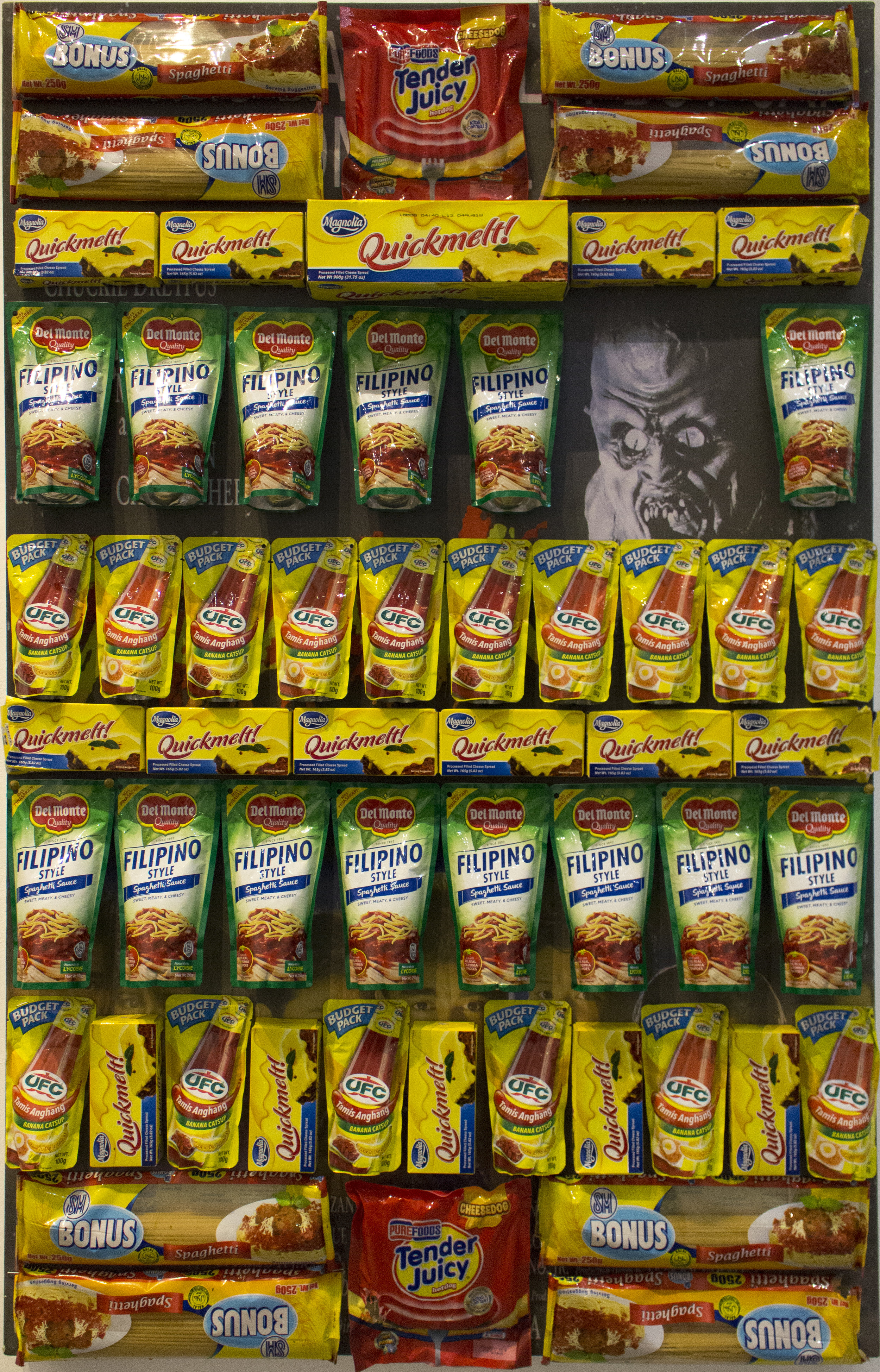Reinterpreting Vic Delotavo’s Posters For Philippine Cinema
Reinterpreting Vic Delotavo’s Posters for Philippine Cinema
11 December 2018 - 5 January 2019
Dranreb Belleza
Valeria Cavestany
Carlos Celdran
Idan Cruz
Patrick Cruz
Robert Langenegger
Romeo Lee
Jayson Oliveria
Raul Rodriguez
Gerardo Tan
Jay Yao
Cecile Zamora
Archivo 1984 proudly presents "Reinterpreting Vic Delotavo’s Poster for Philippine Cinema". The exhibition is corollary to “Vic Delotavo Posters for Philippine Cinema”, Delotavo’s survey exhibition at the Vargas Museum earlier this year. Here, Dranreb Belleza, Valeria Cavestany, Carlos Celdran, Idan Cruz, Patrick Cruz, Robert Langenegger, Romeo Lee, Jayson Oliveria, Raul Rodriguez, Gerardo Tan, Jay Yao and Cecile Zamora reinterpret Vic Delotavo’s work by repurposing his sought-after compositions in the Archivo 1984 collection through their varying artistic styles.
The exhibition trains its focus on the art of the film poster in the Philippines through the prodigious practice of Vic Delotavo (b. 1945). Delotavo studied Advertising in Iloilo and Fine Arts in Manila and started to work for newspapers and magazines in the mid-seventies in Manila. In Iloilo, he was active in the theater scene as a designer of sets and costumes. He began to design and make postersfor Philippine cinema in the early eighties. A notable early work was the poster of Peque Gallaga’s Oro, Plata, Mata (1982). He would then become the most prominent designer of film posters for the most prolific studios of the period: Regal, Viva, and Seiko.
The exhibition revisits the work of Delotavo as a way to appreciate the art of the film poster and to understand the contexts of this form: the film industry and its stars, the techniques and styles of graphic design, and the artistic considerations underlying what Delotavo, who was known for his witty catch lines that complemented the images on the poster, calls the “visual telegram.” At a time when the Philippine film industry has radically declined and that the art of the film poster has vanished owing to the ascendancy of digital technology and social-media marketing, this exhibition is a gesture of historical reflection on both the industry and one of its most ubiquitous devices, the poster, through the exemplary body of work of Vic Delotavo.










